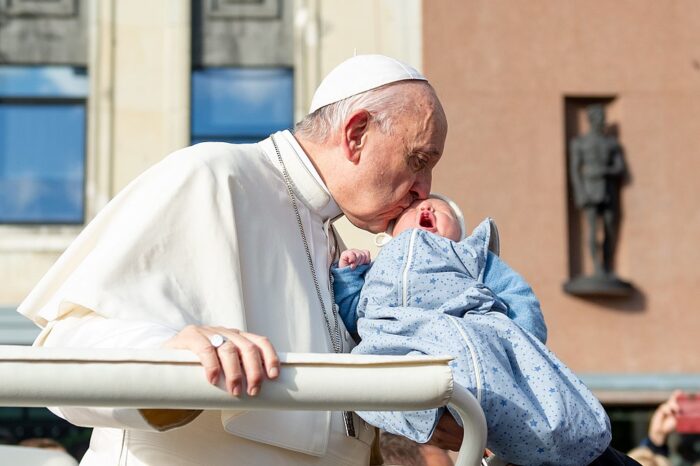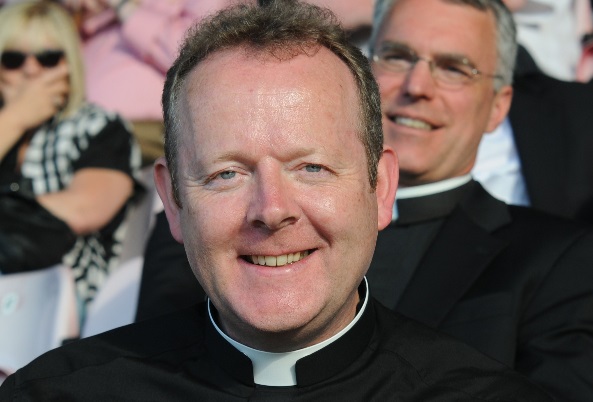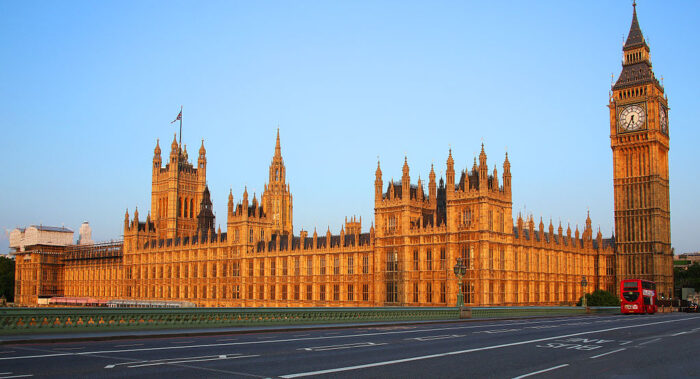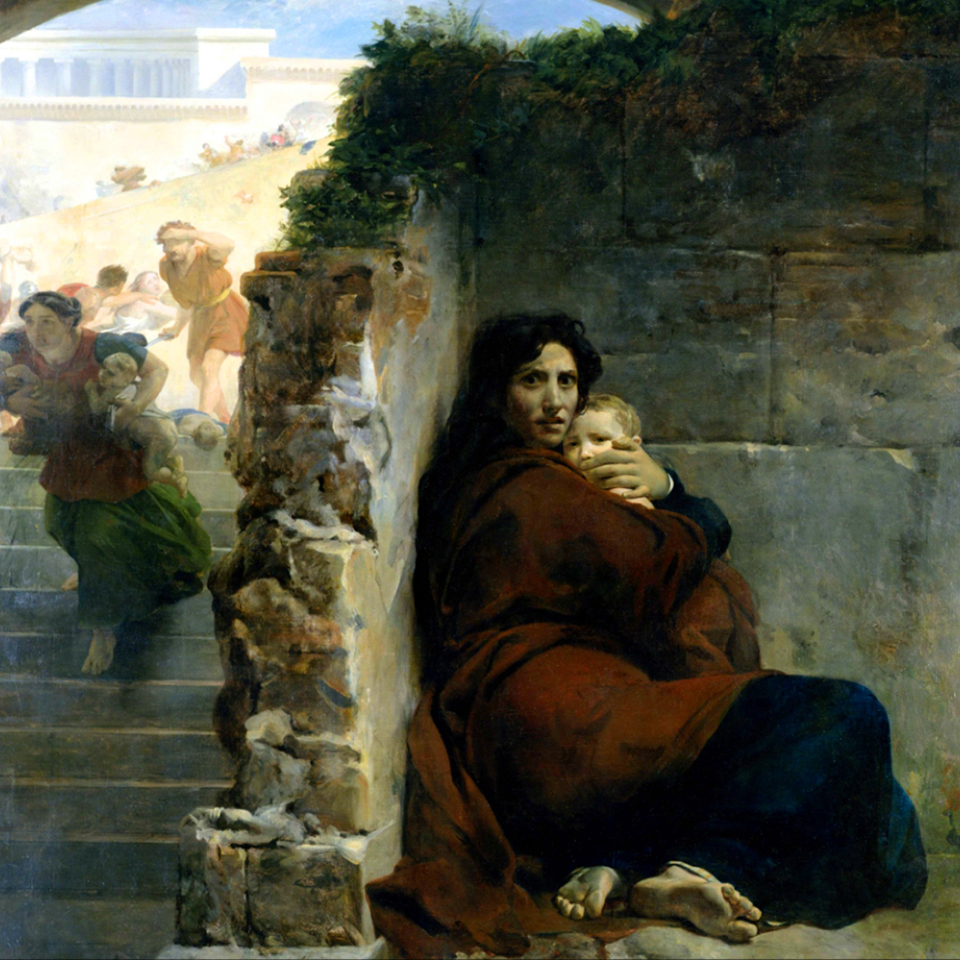
A third of today’s young American adults will never marry, projects think tank the Institute for Family Studies, compared to less than a fifth of those born in previous decades.
The share of childless adults under 50 who say they are unlikely to ever have kids, meanwhile, rose 10 percentage points between 2018 and 2023, from 37% to 47%, according to Pew Research Center.
Although some 30-somethings are consciously choosing a less traditional path, many say these goals are simply out of reach.
As a mix of social and economic factors holds back an entire generation, what researchers once called a lag, they now say is starting to look like a permanent state of arrested development.
“We’re moving from later to never,” says Richard Reeves, president of the American Institute for Boys and Men. He notes that the longer people take to launch into a more conventional adulthood, the less likely they are to do it at all.

Pope Francis ushered in the New Year with a renewed appeal for the faithful to reject abortion and euthanasia, calling for a “firm commitment” to protect and respect life from conception to natural death.
Francis, 88, celebrated a New Year’s Day Mass in St. Peter’s Basilica on Wednesday that was dedicated to the Virgin Mary.
In his homily, he prayed that everyone learns to care for “every child born of a woman” and to protect “the precious gift of life: life in the womb, the lives of children, the lives of the suffering, the poor, the elderly, the lonely and the dying.”
“I ask for a firm commitment to respect the dignity of human life from conception to natural death, so that each person may cherish his or her own life and all may look with hope to the future,” he said.

About 245,000 people accessed the State-funded contraception scheme at least once during the first nine months of 2024, new figures show.
The scheme was introduced in September 2022, initially for women aged between 17 and 25 and has since been expanded to include 26 to 35-year-olds despite a 2019 Working Group on Access to Contraception, under the then Health Minister, Simon Harris, say the proposal would probably be a waste of public funds.
The scheme is projected to reach 320,000 women by the end of the year.
This compares with just under 189,000 women who accessed the scheme in 2023.
A total of €48m was allocated to the scheme this year and almost 2,400 GPs and 2,050 pharmacies are providing services under the scheme.

The Archbishop of Armagh, Eamon Martin, has called on the government to create a new senior office: a minister for the family.
“We just had that [family and care] referendum back in March in which the people of Ireland resoundingly said that family, motherhood and, by connection, home are important to them,” Martin said in an interview with the Sunday Times.
“If we are rebranding the government for a new mandate, why not have a ministry dedicated to the family?”
He added that the referendum result showed that the Irish people were opposed to attempts to “downscale” the societal value of mothers.
The minister’s portfolio should include devising strategies to better support carers, lone parents and motherhood, he argued.
“The family founded upon marriage is fundamental in this country, and the people said that very clearly and unequivocally in the referendum. So why not now name it and invest our time, our energies, our resources into supporting family and marriage and mothers?”

The 11 a.m. Mass at St. Mary’s Pro-Cathedral in Dublin was disrupted by pro-Palestinian protestors on Sunday.
Videos circulating online show around thirty predominantly elderly protesters who walked up the main church aisle after Holy Communion, carrying a variety of placards, including of injured children.
The protest received widespread condemnation on social media including from people who support the Palestinian cause and are sharply critical of Israel.
The priest celebrating the Mass appealed to them, saying: “To those of you who have come into our church at a most inappropriate time, to make your protest, . . . the Irish people have not been silent, and the Irish people have supported the voice and the actions of our government”.
“I would also like you to know that the Catholic community living in Gaza is especially in our thoughts and prayers, as well as all the people of Gaza and Palestinians everywhere”.
He then asked them to leave.
A similar protest occurred during mass at Saint Patrick’s Cathedral, Armagh, two weeks ago.
The group demanded that Christian churches, “unequivocally condemn Israeli genocide, ethnic cleansing and apartheid against the Palestinian people”.
This is despite the fact the the bishops have repeatedly called for a ceasefire, the Church largely leans towards the Palestinians, and the crib in St Peter’s Square in Rome featured the Palestinian scarf at one point.

The number of Christians in Bethlehem and the wider West Bank has plummeted in recent years, a trend that has only accelerated since the October 7 attack last year.
Father Issa Thaljieh of the Church of the Nativity, Bethlehem, said his congregation has fallen from 6,000 to 3,000 during his 13 years at the church. Ten families have left within the past few weeks.
“People are running from this place because they have no freedom, no security, no jobs,” said Thaljieh, 42, whose family have lived in Bethlehem for more than 200 years.
Since the start of the war between Israel and Hamas, economic pressures have been made markedly worse by the Israeli government’s tightening of movement restrictions for Palestinians.
An increasingly belligerent and emboldened Jewish settler movement also threatens to isolate Bethlehem behind a palisade of state-sanctioned settlements approved this year by Israel’s hard-right finance minister.
The threat of Islamic extremism is also of great concern, with one local saying that were anything to happen in Palestine like the takeover in Syria by a group once linked to jihadists he would leave immediately.

The Spanish Supreme Court will not recognise foreign court rulings that affirm surrogacy contracts, as they treat the surrogate mother and the child as “things susceptible to commerce.”
Commercial surrogacy is already banned in Spain.
The case involved a commercial surrogacy contract, validated by a court in Bexar County, Texas, USA, which the commissioning adults asked the Spanish Court to recognise.
Spain’s ‘Tribunal Supremo’ ruled that the best interest of the child is not decided by the interests of the intending parents, the surrogacy contract, or the assigning of parenthood by foreign law, but rather on “the severance of all ties between the minors and the woman who gestated and gave birth to them, the existence of a biological paternal filiation and a family unit in which the minors are integrated”.
The ruling follows a similar case in September, where the Court allowed parents of a child born abroad through surrogacy, by analogy with international adoption, to register the child in Spain as its place of birth and to omit the place of origin.
That ruling came despite a 2022 judgement that surrogacy contracts entail harm to the child’s best interests and exploitation of women that are “unacceptable,” and “dehumanising”.

A bill that would require the UK Government to publish an annual report on medical complications from abortions has passed its second reading in the House of Lords.
In 2018, the Government here opposed similar amendments to Ireland’s new abortion law that would have ensured the same such transparency.
Since then, there have been numerous incidents under the new law where women’s health and lives have been put at risk. One such case was the woman from Limerick who almost died following an abortion due to the presence of an undetected ectopic pregnancy.
A spokesperson for the Pro-Life Campaign said: “It is appalling the way the Government seems content to conceal the truth about what is happening under the new abortion law. Lord Moylan’s bill in the UK is a welcome development as it shines a spotlight on an area that urgently needs greater scrutiny and accountability”.

One of Ireland’s leading columnists has suggested that the world might have been better off if Jesus had been among the babies killed by King Herod’s men.
In her December 20th column for the Irish Times, Justine McCarthy describes Jesus as “one of the greatest influencers of all time”.
However, while pondering the attempt by Herod to kill the newly born “King of the Jews”, she asks: “Had the baby Jesus been among the massacred innocents, might history have turned out to be less hellish for humanity? The Spanish Inquisition might not have happened, nor the Crusades, the French Wars of Religion, the Thirty Years’ War, or the Troubles in Northern Ireland”.
In the column, she even seems to blame religion for the horrors of Nazism even though Hitler was guided by bogus theories about ‘racial purity’ which drew on pseudo-scientific Social Darwinist thinking.

A Church of Ireland school will review its requirement that pupils attend the school’s religious ceremonies after a complaint by a secular group. No complaint seems to have come from any parent at the school.
St Andrew’s National School in Lucan, Co Dublin is part of the local church community with strong links to the Parish church in Lucan village.
Its ethos statement notes they teach the Primary curriculum including religious education, which is normal for denominational schools.
“The essentials of the Christian faith are explored and pupils are encouraged to think independently and develop a personal faith by which they may later live”.
It adds: “Pupils are required to participate in all subject areas and attend all school religious ceremonies. As part of the culture of this school children are informed about Santa Claus, Halloween and the expectation that surrounds this. We do not permit any other view within school.”
However, the lobby group Education Equality have taken issue with the requirement, claiming children have a constitutional right to attend publicly-funded schools without attending religious instruction.
In response, Robert Grier, chair of the board of management, said the school noted the concerns raised and will review the Ethos statement.